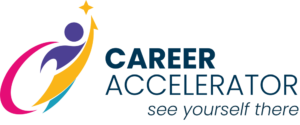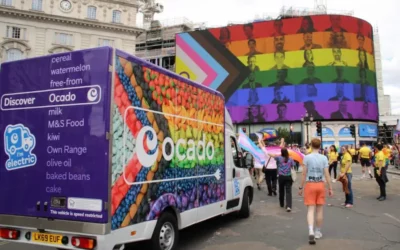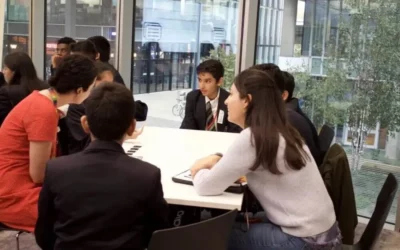As an education business we have been working with young people from underserved backgrounds to help prepare them for top jobs in professional sectors through mentorship programmes led by professionals at leading businesses.
This is important as despite many businesses focusing on improving diversity and inclusion, many are still not embracing underrepresented groups.
A report last year produced by a government commissioned Socio-Economic Diversity Taskforce, led by the City of London Corporation found that working-class employees are far less likely to reach the top of UK financial and professional services firms.
Also, 64% of senior leaders in financial and professional services firms were male, 88% of which are white, and 36% of senior leaders were female, of which 86% are white. Ethnic minority females from a working-class background account for just 1% of senior positions.
Career Accelerator is addressing this by connecting companies and young people. Firms are increasingly recognising the value of engaging in outreach programmes to address their skills shortages, build diverse talent pipelines and tackle growing inequalities in education and employment, as well as provide developmental opportunities for their employees.
Equally students who engage with businesses at an early stage can develop knowledge and skills that are valued in the workplace. Simultaneously, employees can strengthen their transferable skills through mentoring, guiding or training young people, as well as increasing motivation and engagement.
We work with some of the UK’s leading companies including Cisco, Centrica, Pearson, Just Eat, Vodafone and GoCardless on mentoring programmes for students from diverse backgrounds. These include the new Neurodiversity and Disability Programme and LGBT+ business mentoring to prepare young people for successful careers.
The aim is for students to learn about careers, gain soft skills before entering the workplace and engage with mentors from similar backgrounds who can inspire them. We support companies to become attractive places for underrepresented groups to work and ultimately, help nurture tomorrow’s diverse talent.
Mentoring young people
Cisco has been working with us for the past three years, helping young people from low-income and diverse backgrounds prepare for careers in business. They run a school programme, as well as an LGBT+ programme and Neurodiversity and Disability programme.
Speaking about his experience mentoring a young person called Kade, Alvaro Berruga from Cisco said that it was great making an impact in someone’s career by helping them in areas that they are not familiar with yet. Alvaro was able to help Kade improve his software engineering skills, giving him suggestions on how to deal with his manager to achieve his goals and setting a roadmap of things he could work on.
In 2022 we launched the Neurodiversity and Disability Programme to serve students with special educational needs and disabilities (SEND), who continue to be unrepresented in career opportunities.
Centrica is one of the first organisations we connected with neurodiverse and disabled young people. Employees mentored young people from The Tower Project, an organisation supporting the disabled community in London who were matched up based on similar interest and backgrounds. The mentors found it a rewarding experience that was useful for their professional development.
A Centrica employee said they really enjoyed the volunteering opportunity, and it was nice to be able to make time for such a valuable piece of work, that wasn’t about personal investment or gain, it was purely about giving back to a fantastic group of people.
Naomi Hunter, a student at the University of Cambridge who completed the programme said it was a unique careers programme. Naomi took part in 1-1 mentoring with a range of mentors from large tech firms who specialised in different fields relating to her interest and plans for future education.
Naomi says the programme empowered her to understand there are jobs in the tech industry for people like her. Before, the only thing she knew about the tech industry was it had a lack of diversity, but the programme showed her there are people within the industry actively working to change this. She finished feeling that change in the industry was possible and that she too could lead change by pursuing a career in technology.
Preparing and empowering young people from diverse backgrounds to pursue careers in professional sectors while supporting businesses to provide training, volunteering, and marketing opportunities is making a significant difference in diversity and inclusion.
Young people are given the chance to shine and pursue career paths they may not have thought were open to them and businesses can boost their talent pipelines and build more diverse workforces.




